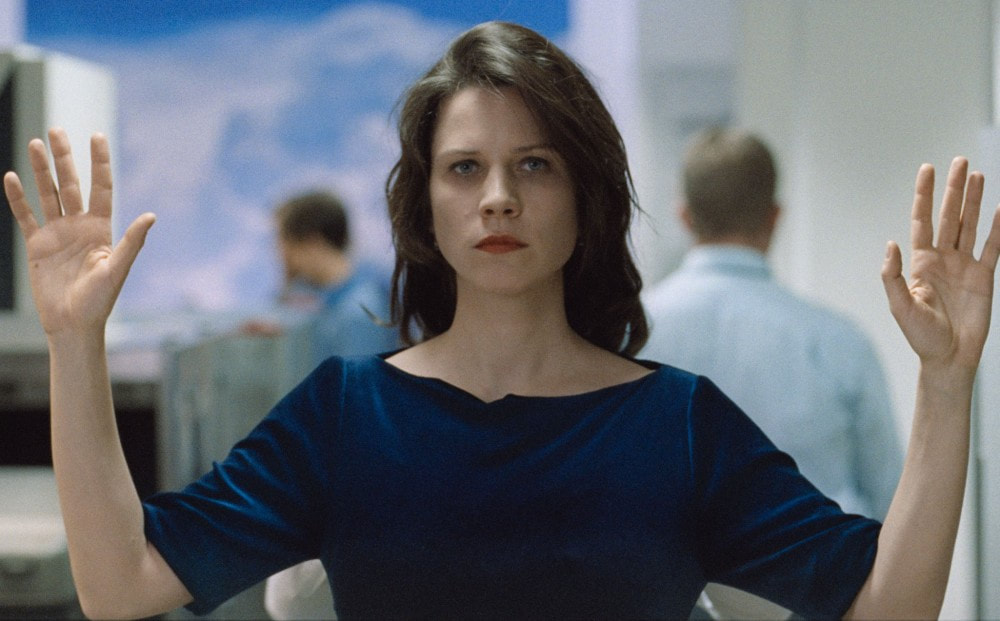|
Natasa Stork in Preparations to Be Together for an Unknown Period of Time (2020) Dreaming Under the Influence with Márta
In the perfectly titled Preparations to Be Together for an Unknown Period of Time, writer-director Lili Horvát tells a fascinating love story about the power of the unknown. To satisfy the unknown would mean to determine or clarify answers. How can one really ascertain as such when met with love at first sight? Love that exists under the influence of some abstraction? Márta (Natasa Stork) is a brilliant neurosurgeon who leaves her American career behind and returns to Budapest “for personal reasons.” She’s in love. The love of her life is János (Viktor Bodó), a man she met once at a medical convention in New Jersey, who agreed they shall meet again exactly one month later at 5pm on the Liberty Bridge in Budapest. He doesn’t keep his promise. Having not exchanged numbers, she tracks him down in search of an explanation and he claims the two have never met in the first place. Márta is abstracted from the reality of who she fell in love with, which puts her in a constant haze…dreaming while awake. She lives distractedly under the influence of love and the mystifying aftermath of not knowing the other person’s feelings. When she first met fellow Hungarian doctor János, she knew in that moment he was exactly who she’s been looking for, and so the loss of a promised meeting between the two of them perplexes her to the point of self-doubt. She worries that she filled in the blanks of her desires; “I wanted something so bad that I dreamed up the whole thing and I lost myself in it,” she tells her case worker during a session, giving him an inquisitive dose of self-reflection. This film tells a story of enormous potency. From the camera’s close-up depictions of Márta to the frequent use of reflections and mirror images, ‘Preparations’ has an incredibly introspective quality. This is also a story that studies the power of a gaze and its many interpretations. One of the most startling scenes in the film shows Márta studying a photo from the New Jersey convention that shows her looking over intensely at a completely unaware János. Filmmaker Lili Horvát creates such a powerfully inward-looking portrait of a woman, and gives energy to Márta’s moments of loss which come with the pursuit of what love can satisfy. Natasa Stork’s all-encompassing performance as Márta gives the film such hypnotizing energy, like being in a trance. The film leaves behind a lingering afterthought: that sometimes what becomes lost through love is a part of yourself. After Márta’s first confrontation with János, where he reacts with complete indifference upon missing the bridge meet, the two unexpectedly find themselves working together in an operation room. Márta had taken a job at a hospital in Budapest; working among misogynistic colleagues, her talent shines and she expertly handles a procedure during which János walks in and oversees. Afterwards the two “officially” meet; he recognizes her from that first confrontation, but she dismisses this and claims she confused him for someone else. Lili Horvát plants the seeds for a fascinating shift that starts to take over, whereby the moment Márta assures János she was mistaken and formally introduces herself, the more he begins to gravitate towards her. Viktor Bodó plays exceptionally into the mystery of János and the ambiguity of his feelings when Márta approaches him. The film is a fascinating look at characters under the influence of not only falling in love, but also running away from it. “Sometimes I see someone on the street and feel I know them, like a long-dead patient,” János tells the audience (while catching a glance towards Márta) at his book launch when asked if he believes in ghosts. There’s a haunting quality that Lili Horvát explores so well throughout the film, in that sometimes a missed opportunity or brief encounter can in fact be haunting. The more time that passes after a powerful first encounter, the more time one has to sit with the ‘what if?’ factor. The film is very much about the power of love at first sight, and the power of lost time. Moments left unsaid between two people make room for mentally filling in the blanks of what could have been, while also opening the door to abstracting one’s self from another person’s reality. The brain is indeed like a city, as János explains, sacrificing one room to save the frontal castle. In many ways, Márta gives a part of herself to a brief encounter, and it’s a part that exists entirely in a world where love rules above all else. The more Márta and János show remnants of recognition, the more Horvát’s film morphs into a dance of the rekindled connection that was once buried. The final chapter of this story is a strange one; what the characters gain in a semblance of certainty, the film loses in intriguing ambiguity. Preparations to Be Together for an Unknown Period of Time unexpectedly feels a lot more disjointed in its conclusion than it does during all the moments preceding. What remains is the persisting abstraction of Márta as she dreams under the influence of love at first sight. Maybe it is the instant feeling of knowing, when you first lock eyes with someone, that holds all the answers.
0 Comments
Leave a Reply. |
Archives
June 2024
Categories |


 RSS Feed
RSS Feed